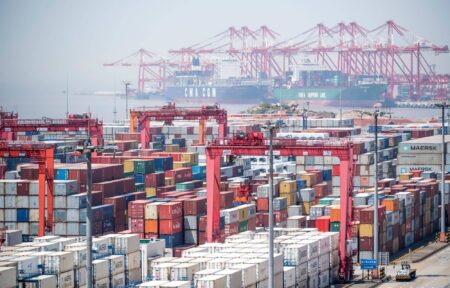- Mastercard has partnered with the Kenya Tourism Board (KTB) to help the country’s tourism sector rebound to its pre-pandemic level
- The MoU aims to drive the growth of tourism numbers in Kenya by leveraging various Mastercard channels, including its Priceless.com platform
- It also includes increasing transparency on tourism trends, anonymised traveller profiles and economic impact through Mastercard’s Data Insights capabilities, which will enable KTB to plan, execute and improve its campaign reports
Mastercard has partnered with the Kenya Tourism Board (KTB) to help the country’s tourism sector rebound to its pre-pandemic level.
In a statement, Mastercard said the three-year collaboration is its first in Africa.
The MoU aims to drive the growth of tourism numbers in Kenya by leveraging various Mastercard channels, including its Priceless.com platform.
It also includes increasing transparency on tourism trends, anonymised traveller profiles and economic impact through Mastercard’s Data Insights capabilities, which will enable KTB to plan, execute and improve its campaign reports.
Mastercard will also explore a loyalty and rewards program to boost tourism and enhance the impact of destination marketing efforts, including campaign planning and execution.
Further, the MoU provides information about Kenya that can enhance experiences during trips for Mastercard holders. Mastercard and KTB also plan to improve the proposition by including bespoke travel packages, bush, city and beach experiences on the Priceless.com platform and brand campaigns to complement the tourism recovery efforts.
Michael Froman, Vice Chairman and President, Strategic Growth, Mastercard, commenting on the MoU, said that tourism is a critical sector for driving employment in any country.
He added that Mastercard is committed to helping countries come out of the pandemic with more robust, resilient and inclusive economic growth, including in the tourism sector.
“We look forward to bringing our insights and assets to the table to help Kenya and its spectacular tourism industry recover from the COVID-19 lockdowns and associated travel restrictions,” she said.
The COVID-19 pandemic hit most sectors incredibly hard, and tourism was no exception. Tourism is a significant contributor to the local economy and showed strong growth in international and domestic tourism at the beginning of 2020.
In 2020 and 2021, Kenya’s tourism sector then declined dramatically. The Ministry of Tourism’s goal is aimed at attracting tourists at pre-pandemic levels, when over 2 million international tourists and over 4 million domestic tourists visit Kenya’s attractions annually, supporting over 24 million jobs.
Kenya Tourism Board CEO Dr Betty Radier said the MoU with Mastercard aligns with KTB’s strategy of expanding their partner ecosystem to strengthen the sector and deliver on the goal of bouncing back fully to pre-2019 levels within the next two years.
“To do this, we are focusing on several avenues to grow tourism revenues, including international and domestic tourism, digital marketing, and creating new and engaging travel experiences. By combining Mastercard’s resources and experience as a leading international payment technology company with our tourism resources, I am confident the initiatives in this MoU will benefit the sector,” Dr Radier says.

Mastercard partners with Ecobank
In a separate story, Mastercard and Ecobank Group recently partnered to connect millions of smallholder farmers in Sub-Saharan Africa to Mastercard’s Farm Pass – a digital platform that makes it safer and easier for farmers to sell their produce at a fair price.
Under the partnership, Ecobank will extend the reach and impact of the Mastercard Farm Pass platform leveraging its Pan-African network of 33 countries.
Kenya: Mastercard, Pesalink sign deal to drive digital payments sector
Many smallholder farmers in Sub-Saharan Africa face several challenges. These include limited market access, working capital to finance activities or secure quality inputs, and relevant financial tools to pay and get paid efficiently. This has led to insecurity, inefficiencies, and a waste of resources and food, preventing farmers from running sustainable businesses.
Farm Pass brings together various agri-sector stakeholders from the supply and demand sides in one agricultural marketplace, amplifying the collective positive impact on farming communities. Smallholder farmers can sell their produce at a better price, access quality inputs and agriculture information, get paid and pay digitally and develop a financial profile that can unlock financing opportunities for working capital and inputs.
According to McKinsey and Company, over 60% of the population of sub-Saharan Africa are smallholder farmers, with the agricultural sector contributing about 23% of the continent’s GDP.
Yet only 3% of the sector receives banking credit, limiting the farmers’ capacity to grow their business or mitigate poor harvest losses. By integrating their businesses with payment systems, Farm Pass enables smallholder farmers to build a digital transaction record to facilitate formal credit or other financial services from banks and other financial institutions.
Mastercard bites a bigger chunk of Africa’s fintech with OPay partnership











